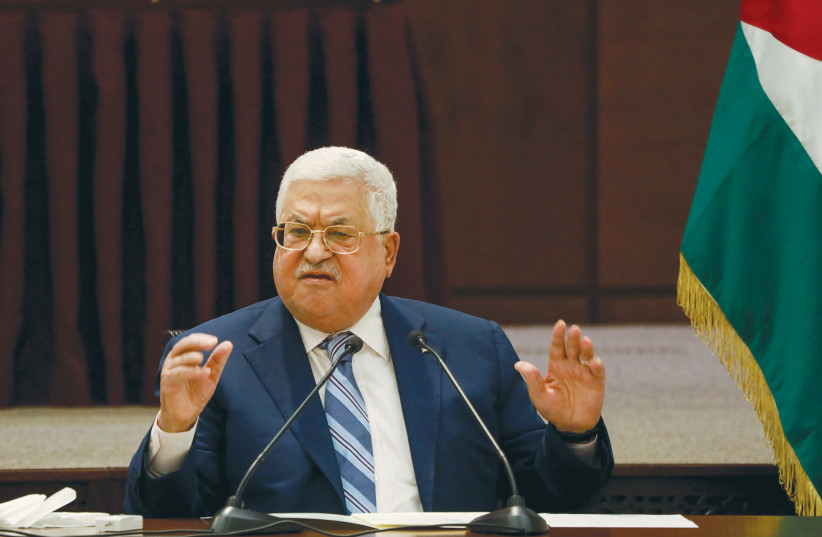The killing of three Fatah gunmen by the IDF in Nablus on Tuesday came as the ruling faction and its head, Palestinian Authority President Mahmoud Abbas, have been facing sharp and widespread criticism for “hijacking” major institutions and excluding other groups from decision-making.
The IDF said the three were involved in a series of shooting attacks against soldiers and Israeli civilians in recent weeks.
The incident in the largest Palestinian city in the West Bank came amid growing criticism by many Palestinians of the security coordination between the PA security forces and the IDF.
It also coincided with allegations that Fatah had abandoned the “armed struggle” and its heads were openly “collaborating” with Israel.
In many ways, nonetheless, the incident serves the interests of Fatah and Abbas.

First, it diverts attention from the controversy surrounding the meeting of the Palestinian Central Council (PCC) in Ramallah earlier this week.
Several Palestinian factions and figures boycotted the meeting, saying it was being held without “national agreement” or a clear strategy regarding the future of relations between the PA and Israel.
Other Palestinians said the main goal of the meeting was to appoint a number of Abbas loyalists to senior positions in the PLO and its legislative body, the Palestinian National Council.
On Monday night, the PCC endorsed the Abbas nominees, further enraging his critics and political opponents.
But as soon as news about the IDF operation in Nablus spread, the debate concerning the PCC session and its decisions was replaced with statements of condemnation by all the Palestinian factions. Palestinians were now talking about the killing of the three men instead of the PCC.
Second, that the three militants belonged to Fatah’s armed wing, Aqsa Martyrs Brigades, allows the faction to boast that its members are also involved in military action against Israel, and not only Hamas and Palestinian Islamic Jihad.
The Aqsa Martyrs Brigades were quick to publish a statement endorsing the three slain gunmen as its “martyrs.” The statement aims to send a message to the Palestinian public that Fatah remains committed to the “armed struggle” against Israel despite its leaders’ talk about the need for a peaceful “popular resistance.”
This is Fatah’s way of scoring points with a disillusioned Palestinian public.
Palestinians pointed out, however, that one of the gunmen, Adham Mabroukeh, had previously criticized the PA and its security forces and accused them of spying on him. On his social-media accounts, Mabroukeh had also posted comments praising the Gaza-based terrorist groups and criticizing the PA over the killing of anti-corruption activist Nizar Banat in Hebron last June.
But it is not unusual for Fatah gunmen in the West Bank to openly criticize the PA and its security forces. Some of the gunmen have also clashed with PA security officers, especially in the refugee camps in Jenin and Nablus.
Third, the Nablus incident allows the PA leadership to continue its campaign of incitement against Israel and urge the international community to exert pressure on it.
The PA government called for an international commission of inquiry into the “horrible crime” and urged the United Nations and other international bodies to condemn Israel.
The PA Ministry of Foreign Affairs accused Israel of committing an “ugly and brutal crime” and held the Israeli government “fully and directly responsible.” It called on the UN to provide protection for the Palestinians and the US administration to pressure Israel to stop its “crimes.”
On the other hand, the incident in Nablus is a sign of the huge challenges facing the PA and its security forces. The presence of various armed groups on the streets of major Palestinian cities is seen by many Palestinians as a sign of the PA’s failure to enforce law and order and rein in the militias, most of which are affiliated with Fatah and feuding clans.
